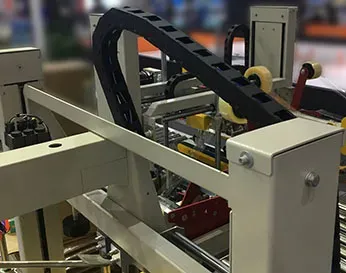Exploring the Benefits and Applications of Corrugated Conduit in Modern Electrical Installations
Understanding Conduit Corrugated Importance and Applications
In the ever-evolving world of construction and electrical installation, conduit systems play a pivotal role in ensuring safety, organization, and efficiency. Among the various types of conduit available, corrugated conduit stands out due to its unique design and versatile applications. This article delves into the characteristics, benefits, and varying uses of corrugated conduit, highlighting its importance in contemporary construction and electrical engineering.
What is Corrugated Conduit?
Corrugated conduit is a type of tubing that is constructed in a wavy or ridged pattern. This design enhances its flexibility and strength, making it suitable for various environments and applications. Typically made from materials such as PVC or HDPE (high-density polyethylene), corrugated conduit can withstand harsh conditions, including extreme temperatures and physical impacts. Because of its structure, it can be easily bent and maneuvered around corners, allowing for effective routing of electrical wiring or other cables in installations.
Advantages of Corrugated Conduit
One of the main advantages of corrugated conduit is its flexibility. Traditional conduit types, such as rigid metal or PVC conduit, can be cumbersome to work with, particularly in complex installations requiring numerous bends or adjustments. Corrugated conduit mitigates these challenges, allowing for smoother transitions and easier handling.
In addition to its adaptability, corrugated conduit provides excellent protection for wiring and cables. The ridged surface adds an extra layer of durability, which is particularly beneficial in environments subject to mechanical stress or potential damage from external factors. Furthermore, corrugated conduit is often designed to be moisture-resistant, ensuring that electrical components remain safe from water intrusion.
conduit corrugated

Another significant benefit is the reduced installation time. Given its lightweight nature and flexibility, corrugated conduit is generally quicker to install than rigid options. This efficiency can lead to cost savings on labor and a faster project completion time.
Applications of Corrugated Conduit
Corrugated conduit is widely used in various sectors, including residential, commercial, and industrial applications. In residential settings, it is commonly employed to protect wiring in garages, basements, and crawl spaces. Its flexibility allows homeowners to run electrical lines seamlessly through walls and ceilings without extensive cutting or alterations.
In commercial buildings, corrugated conduit can be used to manage and protect complex electrical systems. The ability to route cables through tight spaces ensures that installations remain both organized and safe. Moreover, as businesses often require adaptability, the flexibility of corrugated conduit allows for easy modifications if systems need to be updated or expanded.
Industrially, corrugated conduit shines in environments where resilience is paramount. Manufacturing facilities, chemical plants, and outdoor installations benefit from the conduit’s robust protection against chemicals, moisture, and temperature fluctuations. Additionally, depending on the material, some corrugated conduits are resistant to UV rays, making them ideal for use in outdoor applications.
Conclusion
As technology and construction techniques advance, the materials used in electrical installations evolve, with corrugated conduit representing a significant innovation in conduit design. Its unique attributes—flexibility, strength, ease of installation, and moisture resistance—make it a preferred choice for many professionals in various fields. Understanding the benefits and applications of corrugated conduit not only aids in making informed decisions during installations but also ensures enhanced safety and efficiency for electrical systems. As we continue to navigate the complexities of modern construction, corrugated conduit will undoubtedly remain a crucial element in the infrastructures we build.








